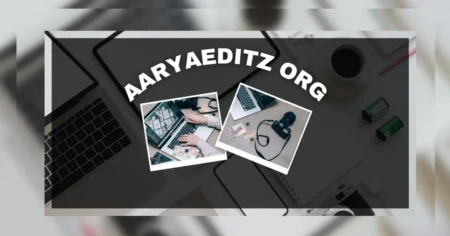In Singapore’s demanding academic landscape, students face some of the toughest challenges during their Junior College (JC) years. Among all subjects, mathematics often stands out as a major hurdle—especially at the H2 level. With abstract concepts, fast-paced lessons, and constant pressure to perform well in A-Levels, many students find themselves struggling to keep up. This is where JC math tuition becomes a vital support system.
Far from being just another academic crutch, JC math tuition provides structure, clarity, and a level of personal attention that many students find missing in traditional classroom settings. Let’s take a deeper look at why this form of tuition is gaining widespread attention and how it is helping students navigate one of the most difficult subjects in JC education.
Understanding the Struggles of JC Math Students
It’s no secret that JC math is a significant leap from secondary school mathematics. Students often enter JC expecting the same level of difficulty they faced during their O-Levels, only to be hit with a syllabus that emphasizes complex concepts such as vectors in 3D, integration techniques, differential equations, and statistical distributions.
In school, lectures tend to move quickly, assuming a baseline understanding. But not all students learn at the same pace, and once someone falls behind, it becomes increasingly difficult to catch up without targeted help. That’s where JC math tuition fills the gap. A well-designed tuition programme is not just about repeating what’s taught in school—it’s about building understanding from the ground up and reinforcing key concepts through customized methods.
The Role of JC Math Tuition in Concept Mastery
Unlike secondary school tuition, JC math tuition often focuses more on high-level problem-solving and the application of core concepts. Good tuition centres break down difficult topics into manageable chunks and provide focused practice to ensure students gain real mastery.
Here are a few key benefits students often experience:
- Stronger Fundamentals: Tutors often start by identifying weak areas and misconceptions. Once those are addressed, students develop confidence and clarity.
- Effective Practice: Repetition is important in math, but smart practice is even more critical. Tuition sessions are tailored to focus on common exam pitfalls and higher-order thinking questions that challenge students to apply their knowledge creatively.
- Real-Time Feedback: One of the most valuable aspects of JC math tuition is the immediate feedback students get. This allows them to correct mistakes early and avoid repeating them during exams.
Personalized Attention That Makes a Difference
Most JC classrooms have anywhere from 25 to 35 students. With so many students and limited time, it becomes difficult for teachers to give individual attention. In contrast, tuition classes are smaller, often ranging between five to twelve students—or even one-to-one sessions. This means tutors can pay close attention to each student’s unique struggles and adapt the teaching pace accordingly.
Students often feel more comfortable asking questions in a smaller group, especially when they’re confused about foundational topics they feel embarrassed to admit they don’t understand. This environment nurtures confidence and promotes a better learning experience overall.
Building Exam Confidence with Real-World Strategies
Exams are more than just a test of knowledge—they’re also a test of time management, accuracy, and the ability to remain calm under pressure. JC math tuition not only prepares students academically but also mentally. Many tuition centres conduct timed practices, mock papers, and detailed solution reviews. These tools help students learn how to allocate time for each section and how to prioritize questions.
Additionally, tutors often provide valuable tips on what examiners look for in working steps and final answers—something not always highlighted in schools. Over time, this leads to improved performance and greater confidence going into the A-Levels.
Choosing the Right JC Math Tuition Centre
Not all tuition centres are created equal. While some follow a cookie-cutter approach, the best ones are known for their track records, engaging teaching styles, and ability to adapt to different learning types. Here are a few things to look out for:
- Experienced Tutors: Look for tutors who have taught JC math for several years and are familiar with the A-Level syllabus and marking scheme.
- Proven Results: Check if the centre has testimonials or success stories. Many reputable centres display results from past cohorts.
- Structured Materials: Quality notes, practice papers, and worked solutions are vital. They help students revise efficiently and retain information better.
- Flexible Scheduling: Especially during exam periods, flexibility in scheduling can make a big difference.
Going Beyond the Numbers: Mentorship and Motivation
One often overlooked benefit of JC math tuition is mentorship. Tutors who are passionate about teaching often become role models for their students. They don’t just teach formulas—they help students stay motivated, manage their stress, and build a mindset that values resilience and effort.
It’s common for students to feel overwhelmed during JC. Having someone they can trust for both academic and emotional support often makes a world of difference.
Final Thoughts
In the high-pressure world of Singapore’s JC education system, JC math tuition has become more than just a helpful tool—it’s a necessity for many. The right tuition programme can transform confusion into clarity, and anxiety into confidence.
With the right guidance, practice, and mindset, students can overcome the daunting challenges of A-Level math and even learn to enjoy the subject. Whether a student is struggling or simply wants to push from a B to an A, investing in quality math tuition could be the smartest academic decision they make in their JC journey.



